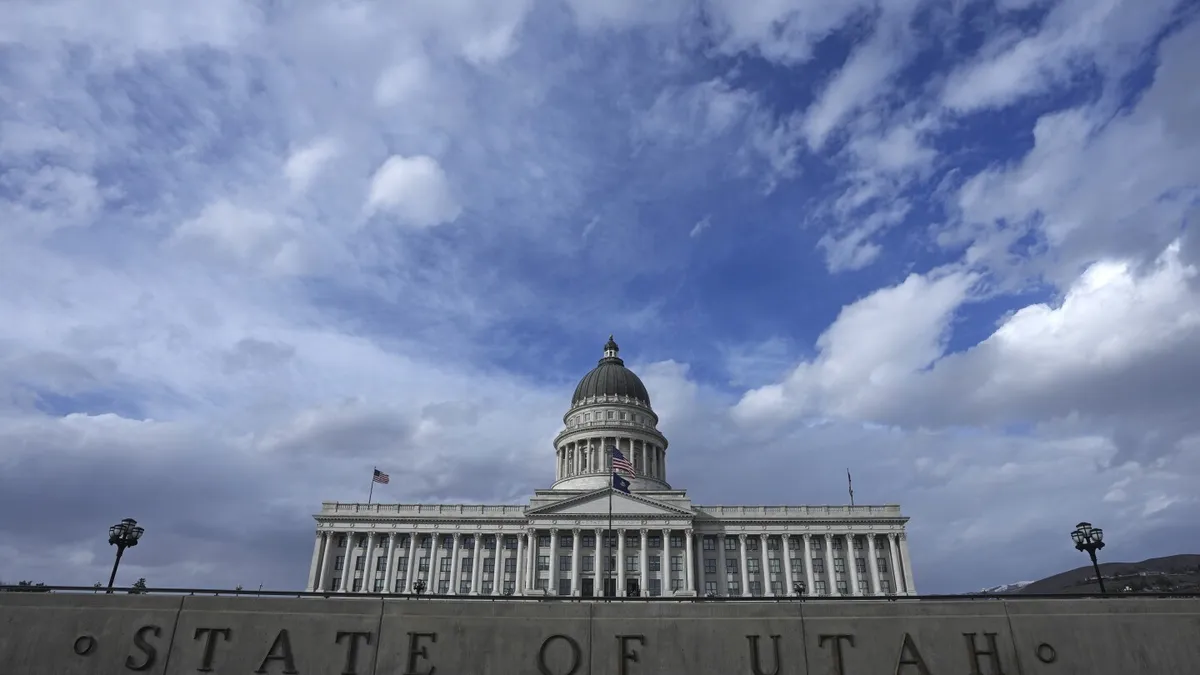
SALT LAKE CITY (AP) — The Utah Legislature is facing an urgent need to redraw the state’s congressional boundaries following a recent ruling by a judge that concluded the Republican-controlled legislature bypassed critical safeguards established by voters. These safeguards were designed to ensure that the congressional districts are not manipulated to favor any particular political party. The current congressional map, which was adopted in 2021, notably splits Salt Lake County—Utah’s most populous area and a stronghold for Democrats—across the state’s four congressional districts, all of which have consistently elected Republican representatives by significant margins.
District Court Judge Dianna Gibson issued a ruling that, while not delving deeply into the specifics of the map's content, deemed it unlawful. The ruling emphasized that lawmakers had undermined and ignored an independent commission established by voters, which aimed to prevent partisan gerrymandering. Judge Gibson stated, “The nature of the violation lies in the Legislature’s refusal to respect the people’s exercise of their constitutional lawmaking power and to honor the people’s right to reform their government.”
Due to this ruling, new congressional maps must be drawn swiftly in preparation for the 2026 midterm elections. Lt. Gov. Deidre Henderson, who oversees elections in the state, has requested that the courts finalize the case by November. This timeline is crucial as it would allow sufficient time for the redistricting process before candidates begin filing in early January. However, potential appeals from Republican officials could delay the implementation of new maps, possibly pushing the timeline to 2028.
This ruling introduces a level of uncertainty in a state that was previously anticipated to be a secure stronghold for the GOP. As the party prepares to defend its narrow majority in the U.S. House, it is noteworthy that Democrats need to gain three seats in the upcoming elections to reclaim control of the chamber. Historically, the party of the sitting president tends to lose seats during midterm elections, as evidenced by President Donald Trump’s losses in 2018. Trump has urged various Republican-led states to create districts that are favorable to the GOP.
In Texas, a proposed plan awaiting approval from Governor Greg Abbott includes the addition of five new districts designed to benefit Republicans. Additionally, Ohio has already scheduled revisions to its maps to enhance their partisanship, while states like Indiana, Florida, and Missouri are also considering changes. Some Democratic-led states have indicated they might engage in similar redistricting efforts, though only California has taken concrete steps to mitigate GOP gains in Texas thus far.
The U.S. Supreme Court is unlikely to intervene in this matter, and the Utah Supreme Court may be reluctant to hear an appeal following its previous decision that sent the case back to Judge Gibson for resolution. In a 2019 ruling, the nation’s highest court determined that claims of partisan gerrymandering for congressional and legislative districts fall outside federal jurisdiction and should be resolved at the state level.
David Reymann, an attorney representing the voting rights groups that challenged the map, hailed the ruling as a “watershed moment” for Utah voters. He remarked, “The Legislature in this state is not king. Today, the voice of Utah voters was vindicated by the district court, which held that the Legislature cannot ignore what Utah voters enact without consequence.”
The response from Utah legislative leaders regarding the ruling has yet to be made public. In 2018, Utah voters narrowly approved a ballot initiative that created an independent redistricting commission responsible for drawing boundaries for both legislative and congressional districts—an initiative that the Legislature was obliged to consider. However, in 2020, lawmakers repealed this initiative and replaced it with legislation that transformed the commission into an advisory board that could be disregarded at their discretion.
The following year, the legislature ignored a congressional map proposal put forth by the commission and instead crafted a map that fragmented Salt Lake County into four heavily Republican districts. Voting rights advocates subsequently filed a lawsuit, claiming that the map constituted partisan gerrymandering that favored Republicans and violated voter rights when the legislature repealed and replaced the 2018 initiative.
The recent ruling reinstates the voter-approved redistricting standards that were previously overturned by lawmakers. Notably, Utah was one of four states where measures aimed at reducing partisan gerrymandering were approved by voters in 2018. In Missouri, the Republican-led Legislature swiftly sought to repeal significant components of these measures. Although Missouri voters later approved the Legislature’s revisions in 2020, the original plan was never implemented.
In contrast, independent commissions established by Colorado and Michigan voters have remained intact and were utilized following the 2020 census. The current redistricting measures are not the only instances where state lawmakers have altered voter-approved initiatives. Earlier this year, Missouri lawmakers repealed a paid sick leave law passed by voters and referred a proposed repeal of an abortion rights amendment to the ballot. Similarly, in South Dakota, voters approved a public campaign finance system, strengthened lobbying laws, and established an ethics commission in 2016, only for lawmakers to replace it the following year with a narrower oversight board and relaxed lobbyist gift limits.